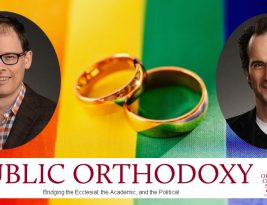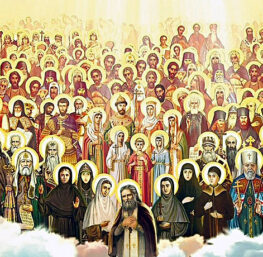Maybe some good that might come out of this is that we finally face how the liberal social policies of the last four decades have kept the poor in permanent poverty.
London Telegraph (Filed: 05/09/2005)
The Superdome has finally been evacuated, and New Orleans’ remaining refugees are almost all safe. A week after initial reports suggested Katrina had blown herself out with a minimum of damage, the statistics are imprecise but staggering: some 10,000 likely dead; hundred of thousands homeless; a repair bill of many billions; and wider economic consequences which are incalculable.
With the reckoning comes the recrimination. It took far too long for supplies to reach the stranded and for troops to arrive in numbers. In the meantime, scenes of Hobbesian disorder developed. It is clear that last week was badly ill-managed. How, and why?
One predictable accusation is that the war in Iraq has diverted the men and matériel that might otherwise have been poured into New Orleans to keep order and assist the refugees. At first sight, this charge looks substantial. President Bush’s odd decision to give the Department of Homeland Security responsibility for natural disasters has prompted the suspicion that money for flood defence has been used for the war on terror; it is also the case that some soldiers from the Louisiana National Guard are serving in Iraq. But it is not proven that more money for flood defence would have lessened the impact of Katrina, and only 10 per cent of America’s total armed forces are in Iraq – as we now see, there were plenty of men available to respond to the disaster immediately.
A president’s main responsibility at times such as these is to look the part: to evince both compassion and resolve, at once acknowledging the scale of the challenge and demonstrating his – and the country’s – ability to surmount it. This is a difficult task, which George W. Bush – as he showed on September 11, 2001 – is not naturally gifted at. At a time when the Iraq war is losing public support at home, any perception of disconnection and incompetence would be disastrous for the president.
It is important to realise, therefore, that the agonies suffered by New Orleans at the moment, insofar as they were avoidable, are the consequence of decisions taken in New Orleans itself – the decisions of its authorities and the decisions of a few of its citizens.
The city’s mayor, in an emotional rant at the weekend, himself admitted that “I don’t know whose problem this is”, suggesting it might be the state governor’s and it might be the president’s. Either way, he implied, it wasn’t his. And perhaps it wasn’t: the ramshackle charm for which New Orleans is famous is represented in a Byzantine power structure. It had been known for years that a major hurricane would wreak terrible damage in New Orleans; it was beyond the city’s multifarious public agencies to co-ordinate themselves sufficiently to plan an adequate response to such a likely eventuality.
Perhaps more shocking have been the decisions taken by a small, but significant, proportion of New Orleanians: to stay in the city and to loot it. The barbarism reported from the city this past week (predatory gangs firing on army helicopters; rapes and robbings; snipers randomly firing into crowds; criminals seizing control of relief supplies and evacuation buses) would discredit Liberia.
It seems extraordinary that a city in a country of such prosperity could degenerate into such squalor, and that a city in a country famed for its strong civic bonds could collapse so fast into anarchy. There is an obvious explanation, of course: the hurricane ensured the departure of most of those disposed to obey the law, who heeded the order to evacuate. Those who remained contained a large proportion of villains, and a larger proportion of victims – people too poor to move. Circumstances combined to wreak chaos.
Yet this explanation does not bring much comfort. It is thought that 100,000 of New Orleans’ 500,000 stayed put; if a fifth of the city’s population comprises criminals or the indigent, New Orleans has greater problems than vulnerability to the weather.
More than a message to President Bush to respond better to sudden disasters, or a reminder to New Orleans to reform its internal governance, Hurricane Katrina represents a call to the whole of America to heal its underclass.




The “fall into anarchy” can be a short trip for some.
No other inevitable natural disaster (with the possible exception of the San Andreas fault) has been fought more on paper than this one. This has been regarded for decades as the Superbowl of disaster management. It would seem that the people charged with managing the event simply failed to read the playbook. In the Superbowl, at least the quarterback (read mayor) should know the plays. Apparently he did not.
There were virtually no surprises here in terms of the physical damage that resulted. The probability of civil disorder is ALWAYS factored into any disaster management plan and it was in this one. I attended disaster conferences thirty years ago (here in the Northeast, no less) where the inevitable New Orleans disaster was discussed at length.
For some cities, the “fall into anarchy” is a shorter drop than for other cities. New Orleans was full of people whose sinful nature is no greater than any of the rest of us before God. (For all have sinned and fall short of the glory of God. Romans 3:23) But having said that, when you have a city that has a much higher concentration of people living the lifestyles of the hedonist, nihilist, existentialist and materialist, there are certain corporate choices that are made. I would argue that these choices could have been a little more forward-thinking than they apparently were.
Suggesting that Katrina was God’s judgment on the city is just ridiculous. If you put sugar in the gas tank of your GM automobile and it dies, it was not the wrath of General Motors visited on you. You made a poor choice and the consequences should have been predictable. If you live in a city that has a sense of higher responsibility and conducts its corporate affairs with an eye toward the future you will be better off.
The criminal behavior and violence was highly exagerated, and most of it was probably rumor. The greatest element of crime was against property, and much of that was commited by supposed law enforcement. There is much more evidence of co-operation among the citizens of New Orleans than what’s been rumored and sensationalized.
Korry, unpack this. What was highly exaggerated, the emphasis on the crimes in the reporting, the number of crimes, the nature of the crimes? — what? And yes, there are stories of cooperation, bravery, selflessness, too. Criminals make only a part of a population.
If you are arguing that New Orleans was not already a city in trouble, read this: New Orleans Didn’t Just Go Nuts — It’s Been Nuts.